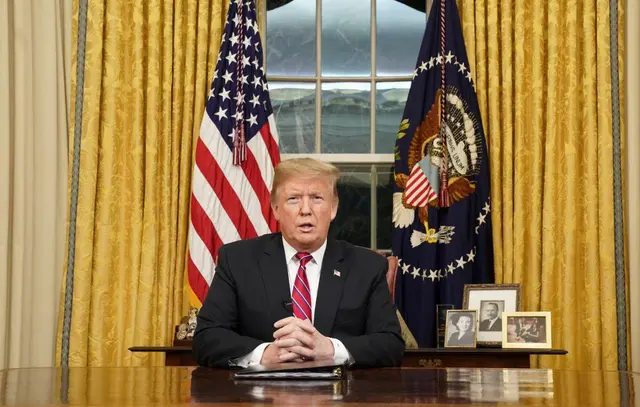Following a briefing by senior UN officials recently returned from Ukraine, a rather undiplomatic debate erupted Wednesday in the UN Security Council between Russia's ambassador and other members of the council as well as the envoy from Kiev.
UN Deputy Secretary-General Jan Eliasson had told the panel of 15 that UN chief Ban Ki-moon was en route to Moscow for talks with Russian President Vladimir Putin to be followed on Friday by discussions with acting Ukrainian President Oleksandr Turchynov and interim Prime Minister Arseniy Yatsenyuk.
"During my recent mission to Ukraine I stressed the importance of inclusive government and the need to preserve a multi-ethnic, multi-cultural and multi-lingual Ukraine with all my interlocutors, " the deputy UN chief said, but added that since then the crisis has worsened.
"The Crimean authorities decided to hold a referendum on Crimea 's status (Sunday) and thereafter announced that close to 97 percent of those who voted did so in favor of Crimea's secession from Ukraine," he said.
"The secretary-general expressed his deep disappointment and concern at the precipitate decision to proceed with a referendum regarding an issue of such far-reaching consequences for Ukraine, the region and beyond. Subsequently, Crimea declared its independence, which in turn was recognized by the Russian Federation."
On Monday, the United States and the European Union moved to apply targeted sanctions against Russian and Crimean officials, followed by Putin signing a treaty, which the Parliament of the Russian Federation is expected to begin ratifying, to make Crimea part of the Russian Federation and the government in Kiev has committed to never accept Crimea's independence or annexation, stating that Crimea is an integral part of Ukraine, Eliasson said.
UN Assistant Secretary-General for Human Rights Ivan Simonovic told the council he was assigned to Ukraine "to make an initial assessment of the human rights situation, highlight the critical importance of respect for human rights in working towards the de- escalation of tensions, and to make recommendations on the way forward."
"I was not able to go to Crimea, as the authorities there initially would not receive the mission, nor ensure its security," Simonovic said, adding that on Sunday he was invited and hopes possibly the head of the UN Human Rights Monitoring Mission, Armen Harutyunyan, will be able to go.
"There is an urgent need for independent monitors to objectively assess and report on human rights violations as well as on the implications of recent events and to monitor the current human rights situation throughout the country," Simonovic said.
At the open council meeting on Wednesday, many Western countries were critical of the hastily called referendum in Crimea on Sunday.
Russian Ambassador Vitaly Churkin targeted remarks made by Ukrainian Ambassador Yuriy Sergeyev, who said in his briefing that police went to people's homes to get out the vote.
"Yesterday (Tuesday), a truly historic event took place," said Churkin. "The reunification of Russian Crimea, something which our peoples have awaited for six decades."
He went on to say how it was accomplished through a referendum in Crimea on Sunday through a democratic process, the will of the people of Ukraine.
"I was stunned how the representative of Ukraine tried to discredit the referendum by using the arguments of western propaganda that those who didn't want to vote were visited at home by a police in tow," he said.
"A few of my Western colleagues probably don't know but my Ukrainian colleagues know that this is an old tried and tested tradition in elections if someone cannot because they are unhealthy, they are ill, to come to the poling booth then the members of the electoral commission come to visit him at home to afford an opportunity to vote," said the Moscow envoy.
It was not the only criticism he heard. After all, it was only last Saturday Russia vetoed a Security Council draft resolution on Ukraine. It was the only negative vote. China, another one of the five permanent members with veto power, abstained. Many Western nations, including Australian, Britain, France and the United States were critical of Russia Wednesday.
Ambassador Samantha Power of the United States said Churkin began his remarks by "extolling the so-called referendum as embodying democratic procedures, and having been conducted without outside interference."
"Russia is known for its literary greatness -- and what you just heard from the Russian ambassador showed more imagination than Tolstoy or Chekhov," she said. "Russia has decided, it seems, to rewrite its borders, but it cannot rewrite the facts."
"The United States rejects Russia's military intervention and land grab in Crimea," the Washington envoy continued. "These actions, again, violate the sovereignty and territorial integrity of Ukraine, Russia's own binding agreements, international law, the expressed will of most members of this Council, and the letter and spirit of the United Nations Charter."
After all 15 members of the panel had spoken, the Russian representative asked for the floor.
He chided "our Western partners" for their "cynicism" over Russia's involvement in Ukraine and the referendum.
"A number of our colleagues spoke up in an excessive way," he said. "Madam Power started with a reference to Tolstoy and Chekhov and finished by having let herself down to the level of tabloid press. It is simply unacceptable to listen to these insults addressed to our country. If the USA expects our cooperation in the Security Council on other issues, then Madam Power must understand this quite clearly." This could be taken as a threat, possibly referring to the cooperation Washington is seeking from Moscow over the Iran nuclear issue.
 简体中文
简体中文





